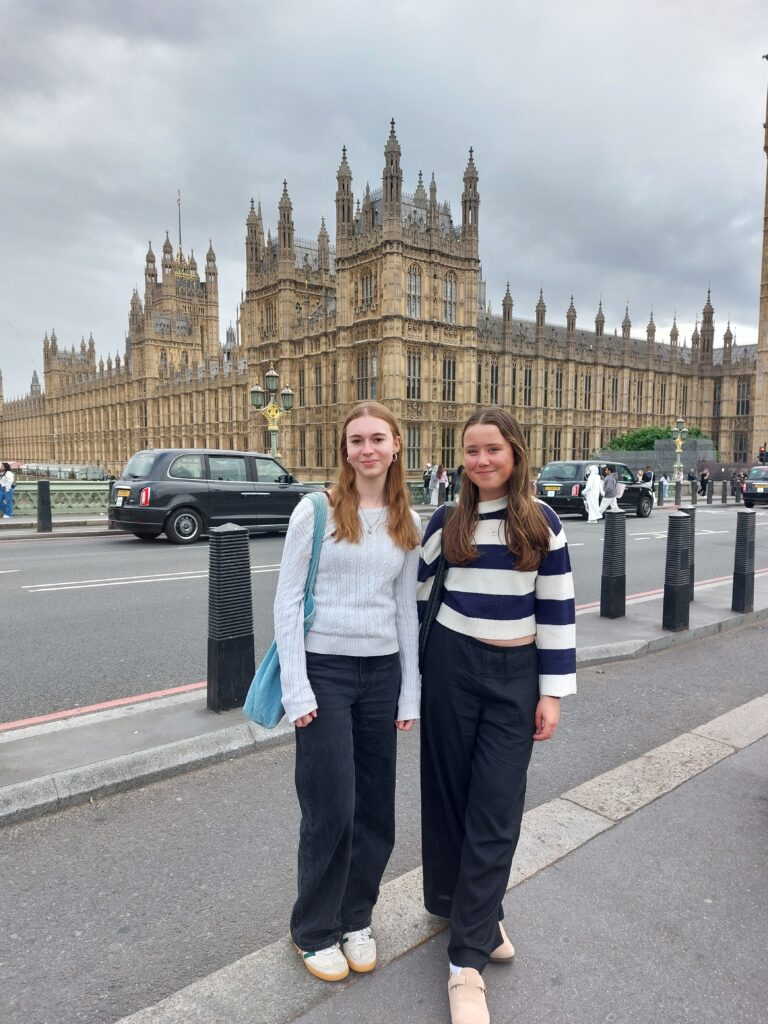On the fourth of June 2025, Ava Watson and Annabel Ochala-Greenough attended the All-Party Parliamentary Group on youth affairs as part of their work experience with Woodcraft Folk. They were joined by fundraiser Grace Dobbie. The panel consisted of policy maker for health and social care Charlotte Kume-Holland, Lauren Sullivan MP, Josh Dean MP, chair of the Commission on Young Lives Anne Longfield, and social justice campaigner Amy Whitelock-Gibbs, alongside the chair Natasha Irons MP. The main focus of the meeting was young people’s mental health and what can be done to mitigate the current mental health crisis the UK is facing.
The panel highlighted the scale of the mental health crisis among young people, noting that 20% have missed school due to poor mental health, and that 1 in 5 individuals aged 8 to 25 have a probable mental disorder. The main theme of the discussion was the sharp rise in mental health issues linked directly or indirectly to both social media and the COVID-19 pandemic. Before the pandemic, 1 in 9 young people had a diagnosed mental disorder—a figure that has since climbed to 1 in 5. This increase was attributed to the isolation that young people faced, being cut off from family, friends, and crucial support networks like schools and clubs. According to The Guardian, GP referrals for mental health support tripled between 2016 and 2024. The panel also pointed to a rise in child poverty during this period, which has further contributed to the growing prevalence of mental health disorders among both children and teenagers. In addition to this, a sharp decline in charitable funding has forced many youth groups and support centres—often lifelines for young people seeking help—to shut down.

Several young people also put forward their concerns regarding the mental health crisis, highlighting the importance of equality during treatment. This included actively campaigning against prejudice, violence and discrimination towards members of the LGBTQ+ community and people of colour within CAMHS and other NHS services. Questions were raised by St John’s Ambulance representatives, asking what the UK government is doing specifically to support young transgender people struggling with their mental health both through policy making and advocacy, as research shows 1 in 6 trans people have a long-term mental health condition compared to 1 in 10 cisgendered individuals. Other significant issues were addressed by the young attendees such as the lack of effective teacher training provided by the government to aid students with poor mental health, as well as the need for more local youth groups so young people can seek help through their community, instead of in a clinical setting.
The panel then responded to the questions and concerns raised by the young people in attendance. They noted that, at present, the government allocates just 1.04% of its total spending to mental health strategies and programmes, however they aim to meet 70% of the diagnosable need by the end of the current parliamentary term. The discussion then turned to the government’s ten-year National Youth Strategy, which focuses on three key priorities. Firstly, there is a strong focus on early intervention to reduce the need for treatment later on. Secondly, the strategy emphasises the need for community-based services—such as drop-in hubs and GP social prescriptions—instead of hospital-based care. These alternatives are viewed as less clinical and more welcoming for young people. Social prescriptions may include referrals to youth groups, sports activities, or local therapists rather than drug-based treatments. Finally, the plan includes adapting to a more digital response, which is an effective way to both reach young people and respond to the digital factors that can contribute to mental health challenges.
The panel also raised the possibility of introducing statutory protections for youth services, alongside sufficiency benchmarks to help prevent funding cuts—cuts which are currently affecting young people. In closing, the MPs in attendance stated that they would consider writing to ministers about the issues raised and would continue to lobby in support of youth rights.
The issues raised during the APPG are particularly relevant to the work done at Woodcraft Folk, as the young attendees highlighted the importance of local communities where people can find support through socialising and education. Woodcraft’s groups and camps aim to provide young people with an outlet for creativity, exploration and adventure, leading to improved mental health, which should be a priority for the government when devising both short and long-term expenditure plans.
To access Woodcraft Folk’s youth services and to find your nearest local group head here.
